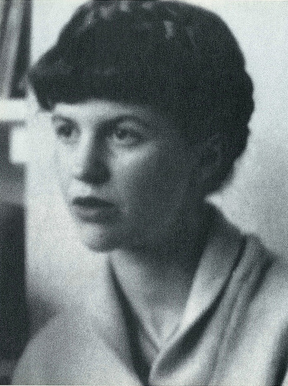Sylvia Plath Berühmte Zitate
Briefe nach Hause, 13. April 1957, S. 320
Briefe nach Hause
„Glück zieht wirklich immer noch mehr Glück an, wie ein Magnet.“
Briefe nach Hause, 21. Juli 1957, S. 333
"good fortune really draws more good fortune like a magnet." - p.324
Briefe nach Hause
Die Glasglocke. Neuübersetzung von Reinhard Kaiser 1997. Suhrkamp Frankfurt am Main 2005. Kap. 8, S. 103
Original engl. “If neurotic is wanting two mutually exclusive things at one and the same time, then I'm neurotic as hell. I'll be flying back and forth between one mutually exclusive thing and another for the rest of my days.” - The Bell Jar, Faber and Faber, London 1966, Kap. 8, S. 101
Die Glasglocke
„Sterben // Ist eine Kunst, wie alles. // Ich kann es besonders schön.“
Madame Lazarus, in: Ariel. Gedichte. Englisch und deutsch. Deutsch von Erich Fried. Suhrkamp Frankfurt am Main 1974. S. 21
Original engl. "Dying // Is an art, like everything else. // I do it exceptionally well." - Lady Lazarus, in: Ariel. Gedichte. Englisch und deutsch. Suhrkamp Verlag, Frankfurt am Main 1974. S. 20
Sylvia Plath Zitate und Sprüche
„Es muß eine Menge Dinge geben, gegen die ein heißes Bad nicht hilft. Aber ich kenne nicht viele.“
Die Glasglocke.Neuübersetzung von Reinhard Kaiser 1997. Suhrkamp Frankfurt am Main 2005. Kap. 2, S. 26
Original engl. "There must be quite a few things a hot bath won't cure, but I don't know many of them." - The Bell Jar, Faber and Faber, London 1966, Kap. 2, S. 18
Die Glasglocke
„Briefe liebe ich, für Briefe lebe ich.“
Briefe nach Hause, 18. Oktober 1962, S. 505
"I love and live for letters." - p. 471
Briefe nach Hause
„Die internationale Sicht ist die Weltanschauung der Zukunft.“
Briefe nach Hause, 11. Februar 1955, S. 167
"The international outlook is the coming world view, [...]" - p. 162
Briefe nach Hause
„Spanien ist der Himmel auf Erden.“
Briefe nach Hause, 7. Juli 1956, S. 271
Spain is utter heaven. - p. 261
Briefe nach Hause
The Bell Jar
Sylvia Plath: Zitate auf Englisch
“If you love her", I said, "you'll love somebody else someday.”
Quelle: The Bell Jar
Quelle: The Unabridged Journals of Sylvia Plath
1950 entry, quoted in Kate Moses, "The Real Sylvia Plath," Salon.com (2000-06-01) http://dir.salon.com/story/books/feature/2000/06/01/plath2/
The Unabridged Journals of Sylvia Plath (2000)
Variante: If I didn't think, I'd be much happier; if I didn't have any sex organs, I wouldn't waver on the brink of nervous emotion and tears all the time.
Quelle: The Unabridged Journals of Sylvia Plath
Quelle: The Bell Jar (1963), Ch. 7
Kontext: Instead of the world being divided up into Catholics and Protestants or Republicans and Democrats or white men and black men or even men and women, I saw the world divided into people who had slept with somebody and people who hadn't, and this seemed the only really significant difference between one person and another. I thought a spectacular change would come over me the day I crossed the boundary line.
“So much working, reading, thinking, living to do! A lifetime is not long enough.”
Quelle: The Unabridged Journals of Sylvia Plath
“I thought the most beautiful thing in the world must be shadow.”
Quelle: The Bell Jar
Quelle: The Unabridged Journals of Sylvia Plath
“I am too pure for you or anyone.
From the poem "Fever 103°", 20 October 1962”
Quelle: The Collected Poems
Variante: The same thing happened over and over: I would catch sight of some flawless man in the distance, but as soon as he moved closer I immediately saw he wouldn’t do at all.
Quelle: The Bell Jar
Quelle: The Unabridged Journals of Sylvia Plath
“Wear your heart on your skin in this life.”
Quelle: Johnny Panic and the Bible of Dreams: Short Stories, Prose and Diary Excerpts
Quelle: The Unabridged Journals of Sylvia Plath
“Then I decided I would spend the summer writing a novel.
That would fix a lot of people.”
Quelle: The Bell Jar
“Nothing stinks like a pile of unpublished writing.”
Variante: Nothing stinks like a pile of unpublished writing.
“I smile, now, thinking: we all like to think we are important enough to need psychiatrists”
Quelle: The Unabridged Journals of Sylvia Plath
